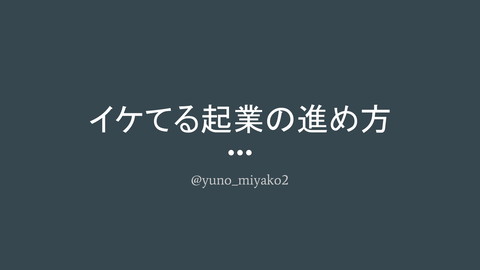token Development (1)
>100 Views
November 01, 25
スライド概要
token
関連スライド

HRBrain 会社説明資料

イケてる起業の進め方

ウェルスナビ会社紹介資料

【カカクコム】会社説明資料
各ページのテキスト
Leading Token Development Company Driving Secure Innovation Token Development in the Digital Economy In today's rapidly evolving digital economy, blockchain technology has shifted the way we create, transfer, and manage value in the world. Of the many innovations to come from the business ecosystem, tokens are arguably one of the most powerful innovations for businesses and individuals alike. Tokens signify ownership and decentralized system allowing for new opportunities across multiple industries including finance and the health sector. A Tokens Development Company is at the center of this trend and launch tokens that align with business objectives while ensuring compliance, scalability, and security. Tokens enable new opportunities for businesses from raising funds through Initial Coin Offerings and Security Token Offerings to building decentralized ecosystems with utility tokens or NFTs. Companies with a development partner in the token ecosystem will be poised to unlock new sources of revenue, engage their global communities and create verifiable trust and transparency in ways that traditional systems cannot provide. In this article we will review why tokens are important, the different types of tokens under development, some real-world examples of tokens in use and the importance of businesses in diverse sectors of the economy including financial technology and financial services using tokenization as a strategy for innovation and growth. A Quick Summary of Tokens in the Blockchain Ecosystem
Tokens are units of digital value that are reliant on blockchain technologies. Tokens are not a currency, which are digital equivalent currency (like Bitcoin or Ethereum) and have a variety of roles. Tokens can, for example, demonstrate ownership of a physical asset, help support a dApp or simply provide access to an ecosystem. Token types are broad Utility Tokens – Provide access to services or products available in the ecosystem of the blockchain. Security Tokens – Provides ownership of a physical asset and is subject to security laws. Stablecoins – This class of token is usually pegged to a fiat currency or commodity, which tracks its value to provide minimal volatility. Non-Fungible Tokens – This class of token is used to represent distinct digital items or a digital collectible. Governance Tokens - This type of token provides the ability to vote on protocol decisions or any governance issue. Tokens all have some specialized function to provide, and tokens are so specialized they require a specialized service design token possibly with some element of compliance in mind. Why Companies Want Tokens Tokenization has created new possibilities for any industry. Companies, startups, and even governments are utilizing tokenomics in innovative ways. Fundraising via ICOs, STOs, and IDOs Tokens provide entrepreneurs with a creative way to raise funds. Instead of pursuing capital solely through traditional VC funding, many companies are conducting Initial Coin Offerings (ICOs), Security Token Offerings (STOs), or Initial DEX Offerings (IDOs) for attraction and funding globally. Asset Tokenization Real estate, art, gold, even intellectual property can be tokenized to allow fractional ownership. This increases liquidity and provides markets for smaller investors to enter. Decentralized Finance (DeFi) Tokens provide a way to create lending and borrowing, staking, and yield farming protocols to create new opportunities in financial plans outside of traditional banking. Community Engagement and Rewards Tokens enable brands to develop strong ecosystems by rewarding users, incentivizing loyalty, and building in-app participation. Cross-border Transactions Companies can use tokens to facilitate and streamline global payments, reducing transaction costs and speed of settlement compared to traditional financial institutions. The Token Creation Process
Creating a token consists of more than just writing some code. It involves strategy, compliance, design, and deployment to name just a few aspects. A professional process means the tokens will be secure, functional, and scalable. The token development process generally has the following steps: Requirement Analysis Understand the purpose of the token, who is the audience, and which ecosystem you wish to integrate with. Blockchain Selection Choose which blockchain platform you wish to use based on scalability, cost and features. Token Design Define the features you desire including supply limit, divisibility, utility and governance functions. Smart Contract Development Code and audit smart contracts so that the functionality of the token enable secure, transparent, and automated execution. Security Audits Robust testing and audit process to eradication of vulnerabilities and high trust. Deployment Launch the tokens on the chosen blockchain and interface together with digital wallets and exchanges (dApp). Post-Launch Support On-going updates, improving scale-up capability and audit compliance for sustainable sustainability. Technologies That Underpin Token Development Token development that is considered sound utilizes advanced and dependable technologies and frameworks: Exchange Listing – Interfaces with centralized and decentralized exchanges for liquidity. Compliance Tools – KYC/AML integration to ensure compliance with regulations. The above technologies ensure that tokens are not only utilized but are safe and internationally compliant.
Reasons to Use Professional Token Development Hiring a proper development company can ensure that tokens are built for success. Some reasons are: Security – Expert teams spend time auditing and assure decreasing risk factors. Scalability – Tokens are designed to accommodate growing numbers of users and transactions. Regulatory Compliance – Security tokens and stablecoins follow regulations set by governing bodies. Customization – Tokens can be specifically made for health care, real estate, gaming etc. Time to market – Professional companies can create a faster time to market by using wellfounded frameworks. Practical Uses of Tokens The effect of tokens is already being felt across many industries : Finance – DeFi platforms make lending, staking, and insurance possible without any middleman. Healthcare – Tokens make it possible to represent a patient's data rights and incentivize healthy behavior. Real Estate – Tokenization makes property ownership fractional which allows for easier investing. Gaming – In-game assets and currencies can be tokenized so that players can trade and earn. Entertainment – Artists and musicians can use NFTs to monetize their creativity directly. Supply Chain – Tokens can provide transparency and traceability of goods from source to consumer. The Future of Token Development Tokens will be an important part of the next wave of blockchain adoption. We anticipate growth in the token economy as governments start testing / exploring central bank digital currency (CBDC), businesses adopt tokenized supply chains, and investors look for fractional ownership in an asset.
In the future we should expect: More Simplistic Regulatory Clarity – Governments will move towards frameworks that will provide better investor protection and stability to markets. Interoperability – Tokens will be able to cross blockchains seamlessly. Consumer Adoption – retail, manufacturing, and logistics will adopt tokenized systems. AI and IoT Integration – Tokens will connect to smart devices and autonomous systems. Global Inclusion – Tokenization will expand financial access to unbanked populations throughout the world. Challenges of Token Development Tokens offer great promise, but development is not without its challenges: Regulatory Uncertainty – Each country has different law, particularly for security token. Security Risks – Vulnerabilities in smart contracts can expose them to hack and loss. Scalability Issues – Some blockchains do not scale to handle a high volume of transaction. Adoption Barriers – The evolution of companies and consumers is stalled by a lack of awareness. Companies addressing the tokenization of goods and services are innovative, creative, and knowledgeable individuals working in production, distribution, and use. Exploring the Future of Digital Tokens in Business and Finance Tokens are redefining the financial and digital landscape by enabling a connection between technology and value creation. Opportunities exist in marketplaces for start-ups raising capital for new products and for established enterprises creating decentralized ecosystems. Engaging a token development specialist will help businesses ensure that they have a secure, compliant, and successful token project. Adoption of tokens is in its infancy, but the forward motion cannot be denied. Token development projects will help the blockchain ecosystem mature, with tokens becoming the basic bricks for future economies and societies to evolve in their interactions over ownership, value, and trust on a global scale.


